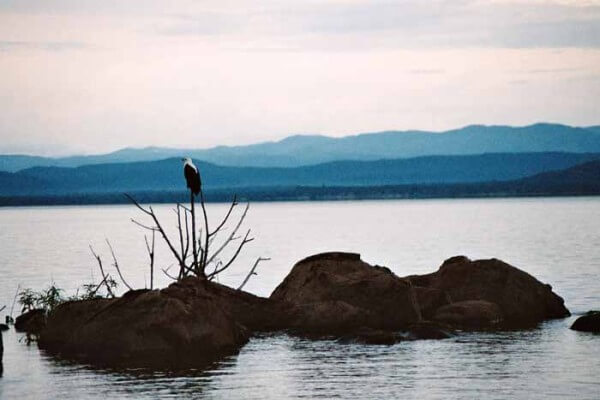Located in north-eastern Namibia, 24 kilometres east of Kamanjab is Otjitotongwe Cheetah Park, which is home to the ‘Save the Cheetah’ project. This non-profit organisation was established with the goal of conserving cheetahs in their natural habitats. The 7000 hectare farm houses both tame and wild cheetahs, many of which are brought to the Park by farmers who wish to keep the majestic creatures from being killed. ‘Otjitotongwe’ comes from a native Namibian language, Oshiherero. Here, visitors are free to observe the feeding of the cheetahs, which never fails to make for incredible photographic opportunities.
Top Adventure Tours to Namibia:
15 Day Okavango Delta and Namibia Adventure
6 Day Namibia Dunes and Wildlife
Initially, cheetah inhabited the majority of the African continent, aside from the equatorial forest, Sahara and Namib Deserts, and much of the Middle East and India where the animals became extinct in the late 1940s. The beautiful animals are currently very rare in the rest of Asia and Africa, north of the equator. There are approximately less than 7,500 cheetahs remaining in the world, 6000 of which can be found in Southern Africa. A 1970’s study showed that the cheetah population in Namibia had grown due to the removal of lion and hyena in the area. In certain instances, it was because of the re-introduction of numerous antelope species which are a favourite food amongst cheetahs.
Newer surveys conducted have indicated that Namibia contains up to 2,500 cheetah of which 95% are located on private farms. Sadly, some farmers have continued to kill cheetah due to their instinctive raids on stock when their natural prey seem to be scarce or are nowhere to be found. Though the present figures don’t make these predators ‘endangered’ as such, the incredible amount of genetic uniformity that these big cats have shown to reveal, increase the chances of a disease that could be devastating to wild animal populations. Therefore, Otjitotongwe is devoted to the protection and preservation of the cheetah species.

This photo of Otjitotongwe Cheetah Park is courtesy of TripAdvisor
The Park also provides wonderful guided game tours through the Park during which you will be able to spot wild cheetah, as well as various unguided nature trails. The landscape of the area includes plenty of indigenous plant species, including Python Vines and Stromatolites (fossil algae that grows in a warm, shallow ocean that once spread over northern Namibia). The bungalows and campsites on the farm are encircled by lovely bush scenery, with the cheetahs nearby.
The cheetah tour begins at approximately 3pm each day (4pm in winter). You are then brought to the tamed cheetahs, where you can happily snap away with your camera and will be allowed to touch the cheetahs – at your own risk. In the mornings, feel free to roam the area and explore the numerous walking trails available.
In the main thatched building of the Park is the restaurant and bar. Spend time unwinding on the soft grass near the swimming pool or participate in some of the activities on offer. With beautiful scenery and gorgeous wildlife, the Otjitotongwe Cheetah Park is definitely one of the places to pay a visit to when vacationing in Namibia.






0 Comments